Fosse Ardeatine
On March 23, 1944, Italian partisans carried out an attack in central Rome against the German police regiment Bozen. A pre-placed explosive device detonated when the regiment passed by and gun fight between SS soldiers and partisans followed the explosion. In all, 25 Germans were killed and seven fatally wounded. The German response did not wait and lists of Italians were compiled same day as the attack occured. These italians were to be killed as retaliation for those germans killed and wounded. The next day, 335 people were taken to an old quarry (Fosse Ardeatine) just south of Rome. The victims were brought into the quarry in groups of five and shot. The executions were led by SS officers Erich Priebke and Karl Hass. The bodies were buried among the stones. The executions were carried out in secret and any official proclamation was not made, as usually done when the germans wanted to set an example. However, rumors about the massacre spread and just two months later, when Rome was liberated, the bodies were found and reburied.
Current status: Preserved with museum (2018).
Address: Via Ardeatina 174, 00179 Rom.
Get there: Car.
Follow up in books: Katz, Robert: The Battle for Rome: The Germans, the Allies, the Partisans, and the Pope, september 1943–June 1944 (2004).
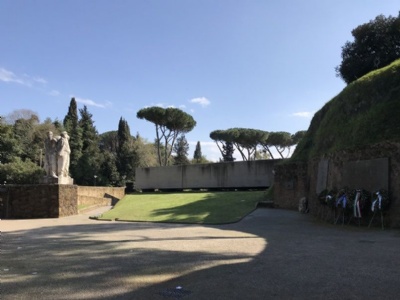
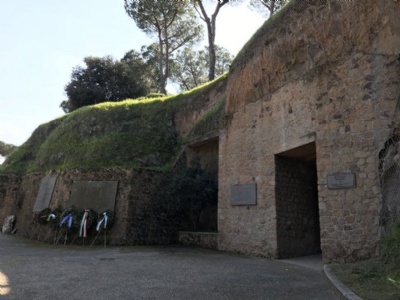
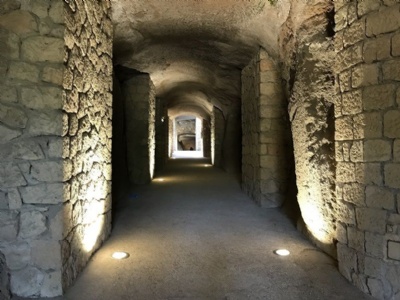
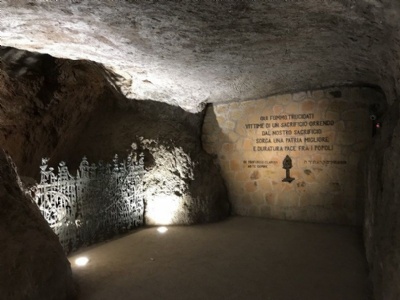
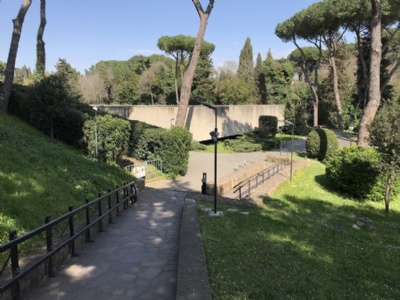
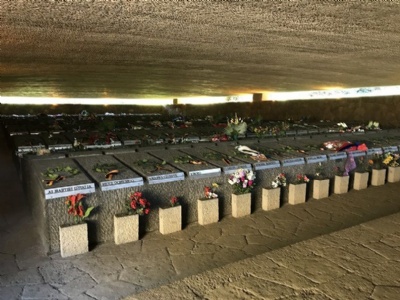
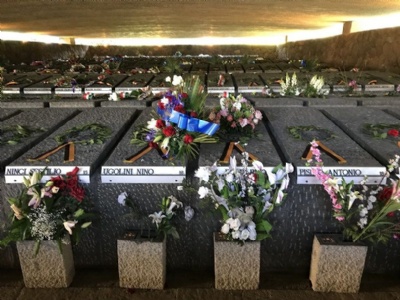
The quarry can be visited and just outside there is a mausoleum with 335 sarcophagi neatly arranged with the names of each individual who was murdered. Fosse Ardeatine has become a national symbol of the German occupation and the crimes committed in Italy during the Second World War. There is also a small museum but it is the quarry and the mausoleum that is interesting.
One of those responsible for the massacre, SS officer Erich Priebke, fled after the war to Argentina where he lived undisturbed for 50 years to the point that he finally felt safe to talk freely about the massacre. This proved to be a mistake and voices were heard that he should be extradited to Italy and brought to justice. The Argentine authorities placed Priebke under house arrest pending his surrender to Italian authorities in 1995 when he was flown to Italy. Priebke was acquitted in the initial trial, resulting in violent protests that resulted in a new trial. In that trial, Priebke was sentenced to 10 years in prison but, due to his age (85 years), was converted to house arrest. Priebke died in Rome in 2013 at the age of 100. He never expressed any remorse or moral responsibility for his actions.